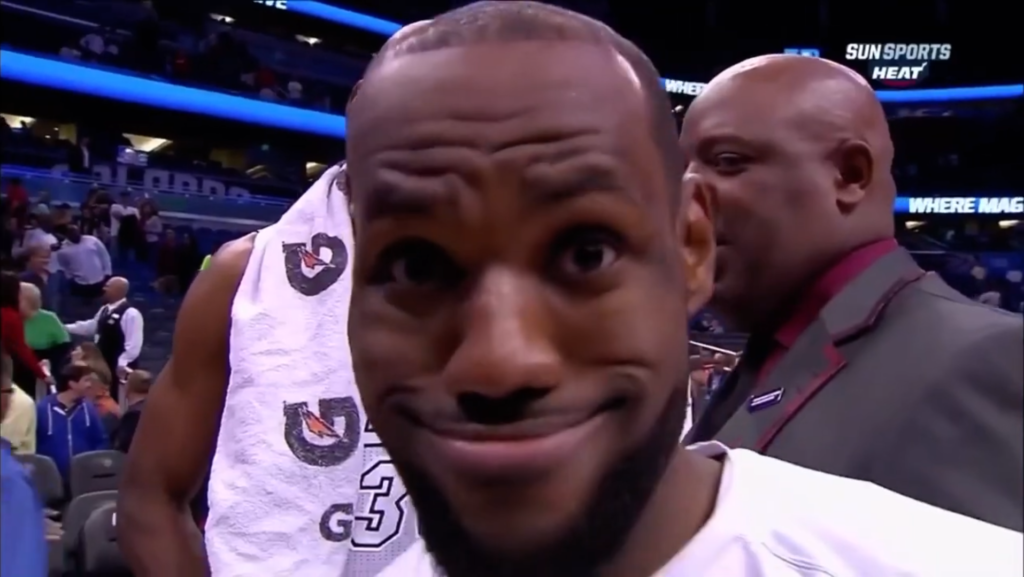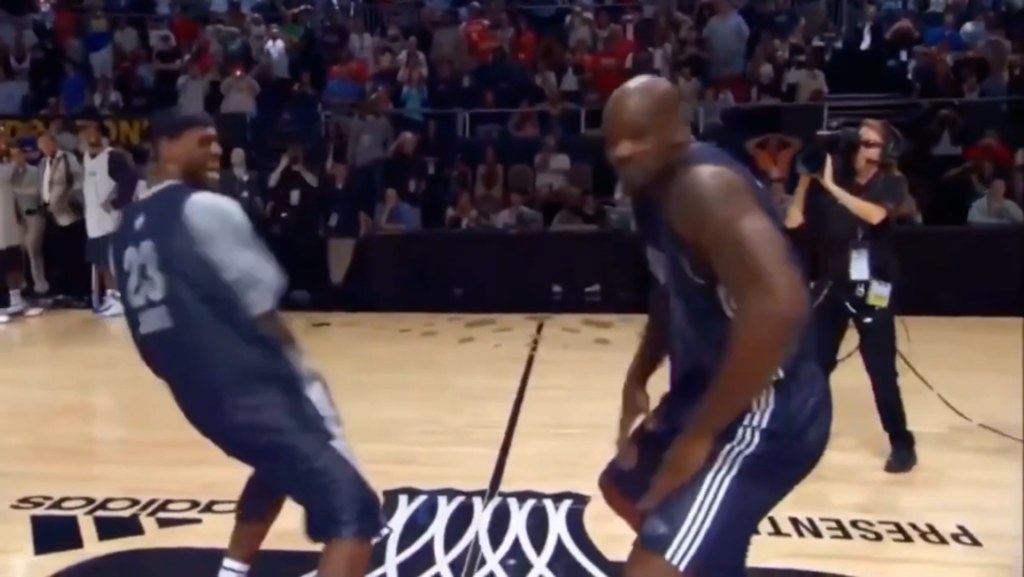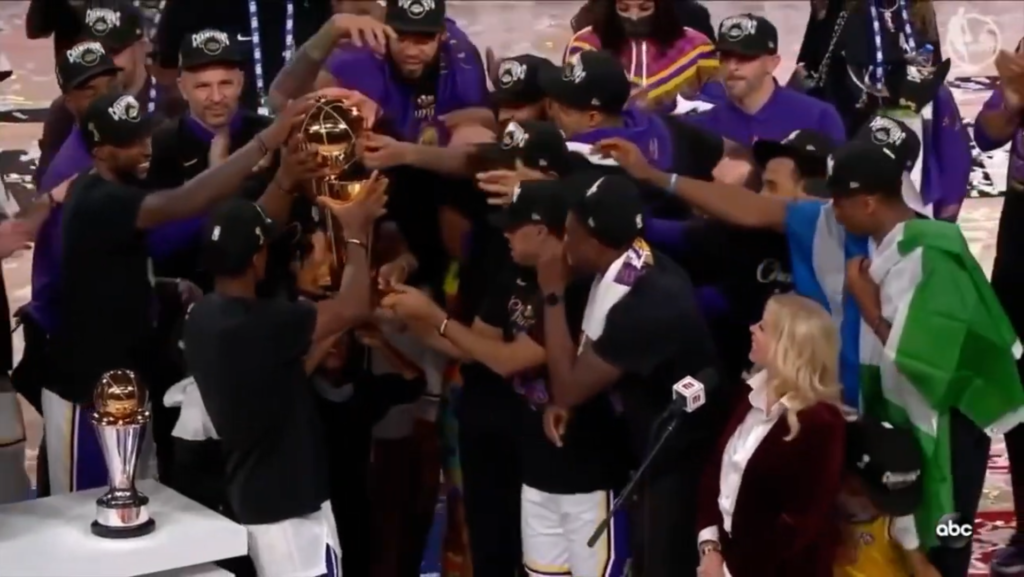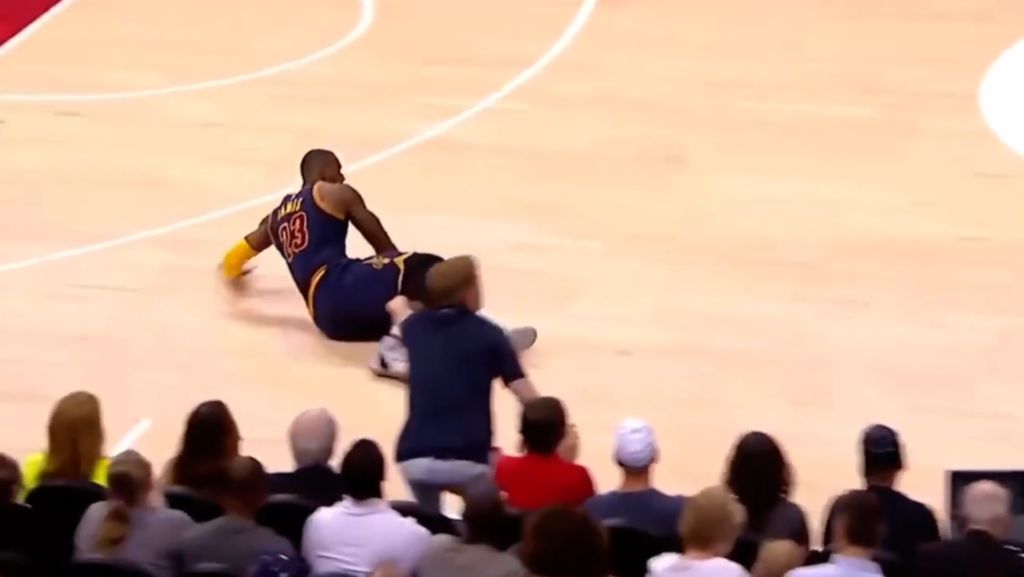The nickname “Mickey LeFraud” has gained attention among NBA fans, particularly in discussions about LeBron James and his championship victories. This term highlights a perception that some of his achievements, especially during the 2020 season, came during an easier path to the title. Many critics argue that this undermines the significance of his accomplishments and casts doubt on his legacy as one of the greatest basketball players.

Fans have embraced this term on social media, highlighting moments when they believe LeBron failed to meet expectations. Debates around his performance, such as his finals losses and the context of the 2020 NBA Championship, fuel discussions about LeBron’s status in basketball history. Understanding the factors that contribute to this nickname is essential for anyone following the current NBA landscape.
Key Takeaways
- The term “Mickey LeFraud” reflects criticisms of LeBron James’ championship wins.
- Public opinion often varies based on performance and context during pivotal games.
- The nickname has sparked ongoing debates about athletic legacy in professional sports.
The Origins of the Mickey Lefraud Case

The term “Mickey Lefraud” stems from strong opinions around LeBron James’s NBA achievements. Critics question the legitimacy of some of his titles, especially those won during unique circumstances. This controversy has sparked heated discussions among fans and commentators.
Initial Allegations
The origins of the “Mickey Lefraud” label began with critiques of LeBron James’s successes. Specifically, it refers to his 2020 championship win while playing in the NBA Bubble. Skeptics claimed that the unusual conditions—empty arenas and a unique playoff format—made this title less legitimate. Fans began using the term “Mickey Mouse ring” to suggest that the win was not as meaningful as traditional championships.
Some arguments point to his Finals records, highlighting earlier losses as evidence of his challenges in high-pressure situations. Critics argue these factors contribute to the perception of James as someone who benefited from favorable circumstances.
Public Reaction
The reaction to the “Mickey Lefraud” claim has been polarizing. Many fans and sports analysts defend LeBron, arguing that a championship is a championship, regardless of context. Supporters highlight his numerous accomplishments and consistency throughout his career.
Conversely, detractors continue to voice their opinions on social media and forums. The term has spread widely, with various memes and discussions online, often satirizing James’s legacy. This ongoing debate illustrates the deep divides among basketball fans, making LeBron a central figure in sports controversies.
Legal Proceedings and Evidence
This section covers the legal proceedings related to the controversy surrounding Mickey LeFraud. It includes key court hearings, notable testimonies, and essential documentation presented during the cases.
Court Hearings
Court hearings play a significant role in examining the claims against Mickey LeFraud. These sessions focus on specific allegations, including performance during critical games and accusations of unsportsmanlike conduct.
In various hearings, both sides present evidence and call witnesses. The atmosphere in the courtroom reflects the tension between fans and skeptics. The proceedings also highlight how public opinion influences legal actions. Each hearing contributes to a growing record that will shape future discussions about LeFraud’s career.
Notable Testimonies
Witness testimonies are crucial in legal cases. LeFraud’s contemporaries and critics often take the stand. Their statements help paint a clearer picture of his actions on and off the court.
For example, former teammates may testify about game strategies and dynamics. Critics, on the other hand, discuss perceived failures in critical moments. This mix of opinions creates a layered narrative that adds depth to the arguments presented.
Personal stories from witnesses also resonate. They can sway public perception and influence the ultimate outcome of the proceedings. These testimonies, whether supportive or critical, are essential to understanding the ongoing debates surrounding LeFraud.
Presented Documentation
Documentation presented in court serves as the backbone for many claims. This includes game footage, statistics, and reports from sports analysts. Each piece of evidence aims to assess LeFraud’s performance and reputation.
Statistical data is particularly compelling. It compares LeFraud’s achievements to those of other players, underscoring claims of inflated accomplishments. Game footage, both favorable and unfavorable, is key in illustrating moments that define his career.
Additionally, documents such as contracts and endorsements can highlight the financial impact of LeFraud’s image. These records not only showcase his successes but also provide context for the ongoing scrutiny he faces in the sports community.
Media Coverage and Public Opinion
Media coverage plays a crucial role in shaping public opinion about various topics, including controversial figures and events. The interactions between traditional news outlets and social media platforms influence how narratives are formed and spread across society.
Press Involvement
Traditional media, including newspapers and television, have a powerful effect on public opinion. Coverage of controversial figures like Mickey Lefraud can sway perceptions significantly. News outlets often prioritize certain aspects of a story, which can frame public perception in specific ways.
Research shows that prominent media narratives can lead to increased polarization among audiences. For instance, if coverage focuses on sensational events or strategies, it can amplify public emotions and affect individual viewpoints. This can create a feedback loop where public opinion further influences media narratives, making the relationship between them quite complex.
Social Media Impact
Social media has transformed how news is distributed and consumed. Platforms like Twitter and Facebook allow users to share opinions rapidly, which can challenge traditional media narratives. This democratization of information means that stories about Mickey Lefraud can go viral, reaching wide audiences regardless of media gatekeeping.
Moreover, social media can create echo chambers, where users only engage with views that reinforce their beliefs. This can lead to intensified opinions and alter how people perceive media coverage. The instantaneous feedback mechanism in social media allows public sentiment to shape narratives in real-time, making it an essential factor in understanding modern public opinion.
Consequences and Repercussions

The actions taken by individuals carry significant consequences, impacting their lives and those around them. Understanding the outcomes of these actions is crucial for grasping their full effect.
Sentencing Outcomes
In cases where Mickey LeFraud is involved in legal issues, sentencing outcomes can vary greatly. Factors such as the severity of the crime, past behavior, and the legal framework play essential roles.
For example, if found guilty of fraud, he might face:
- Fines: Monetary penalties can reach substantial amounts, affecting personal finances.
- Probation: Limited freedom could be imposed, requiring regular check-ins with authorities.
- Prison time: For serious offenses, incarceration may be warranted, leading to a significant loss of freedom.
The legal repercussions impact not just the individual but also their family and community, making it essential to consider all aspects of the situation.
Long-term Effects
Long-term effects of legal troubles for someone like Mickey LeFraud are profound and multi-faceted. A criminal record can alter future opportunities.
Some possible long-term effects include:
- Employment challenges: Many employers conduct background checks, making it harder to find work.
- Social stigma: Being labeled a felon can lead to isolation and difficulty maintaining personal relationships.
- Financial strain: Legal fees and lost income during incarceration can lead to ongoing financial problems.
Navigating these consequences requires foresight and planning to mitigate negative impacts on life and future goals.
Comparative Analysis

Comparative analysis involves studying similar cases to gain insights into the current situation regarding Mickey Lefraud. By examining related historical events and their outcomes, one can better understand the implications for future legal actions.
Similar Cases in History
Several notable cases in history bear similarities to Mickey Lefraud’s situation. For example, the case of Emile Zola in the early 1900s involved a public figure accused of wrongdoing, which led to significant legal and social ramifications.
In another instance, The Rosenbergs trial showcased how public perception and media can impact judicial outcomes. These cases highlight the complexities of law, public opinion, and the judicial system.
Understanding these precedents can provide valuable lessons for current stakeholders. Key factors include:
- Media Influence: How media portrayal affects public opinion.
- Legal Strategies: The tactics used by defense and prosecution.
- Public Reaction: Responses from communities and social movements.
Impact on Future Litigations
The outcomes of cases like Mickey Lefraud’s can shape future litigations. Similar situations often lead to important changes in legal practices, including shifts in how cases are prosecuted.
For instance, cases may set new precedents regarding evidence admissibility or juror selection. Legal teams will study these historical cases to inform their strategies going forward.
Relevant aspects to consider include:
- Legal Precedents: New guidelines established by previous rulings.
- Judicial Trends: Shifts in court attitudes toward certain types of cases.
- Legislative Changes: Potential for new laws emerging from public outcry.
These factors ensure that the implications of Lefraud’s case extend beyond the immediate circumstances, influencing future legal frameworks.
Frequently Asked Questions
This section addresses common questions about the terms “Mickey Mouse ring” and “LeFraud.” It explains the context and implications of these phrases in the world of basketball and professional sports.
What factors contribute to the characterization of a championship as a ‘Mickey Mouse ring’?
A “Mickey Mouse ring” often refers to championships won under questionable circumstances. These factors can include injuries to key players, shortened seasons, or a lack of competition. Critics use this term to suggest that the achievement lacks the legitimacy of a traditional championship.
How has the connotation of ‘Mickey Mouse’ evolved within the NBA context?
Initially, “Mickey Mouse” was used lightly to describe trivial or unserious matters. In the NBA, it has come to signify a dismissive attitude toward championships perceived as easy to obtain. This change reflects a broader criticism of how certain titles are achieved, emphasizing competitiveness.
Who was the individual implicated in the ‘LeFraud’ accusations, and what was the basis for such a nickname?
LeBron James is the player commonly associated with the “LeFraud” nickname. Critics label him this way due to his championship wins, especially in seasons they believe lacked competitive fairness. This nickname reflects frustrations from fans who view his success as not fully earned.
What impact do the ‘LeMickey’ and ‘LeFraud’ discussions have on the public perception of professional athletes?
Such discussions can significantly shape how athletes are viewed by the public. They can diminish the respect and admiration that fans have for certain players. Negative labels can influence how fans discuss and perceive their overall contributions to the sport.
Can you explain the origins and implications of the term ‘Mickey Mouse ring’ in sports competition?
The term “Mickey Mouse ring” has its roots in a perception of non-seriousness or lack of real value in the achievement. In sports, it implies that a championship lacks legitimacy. This perception can affect the way athletes and teams are evaluated historically.
How do changes in an athlete’s public image affect their endorsement and branding opportunities?
An athlete’s public image plays a critical role in their endorsement deals and branding efforts. Positive perceptions can lead to lucrative opportunities, while negative sentiments may result in fewer deals. Brands often seek athletes with favorable images to represent their products and values.






